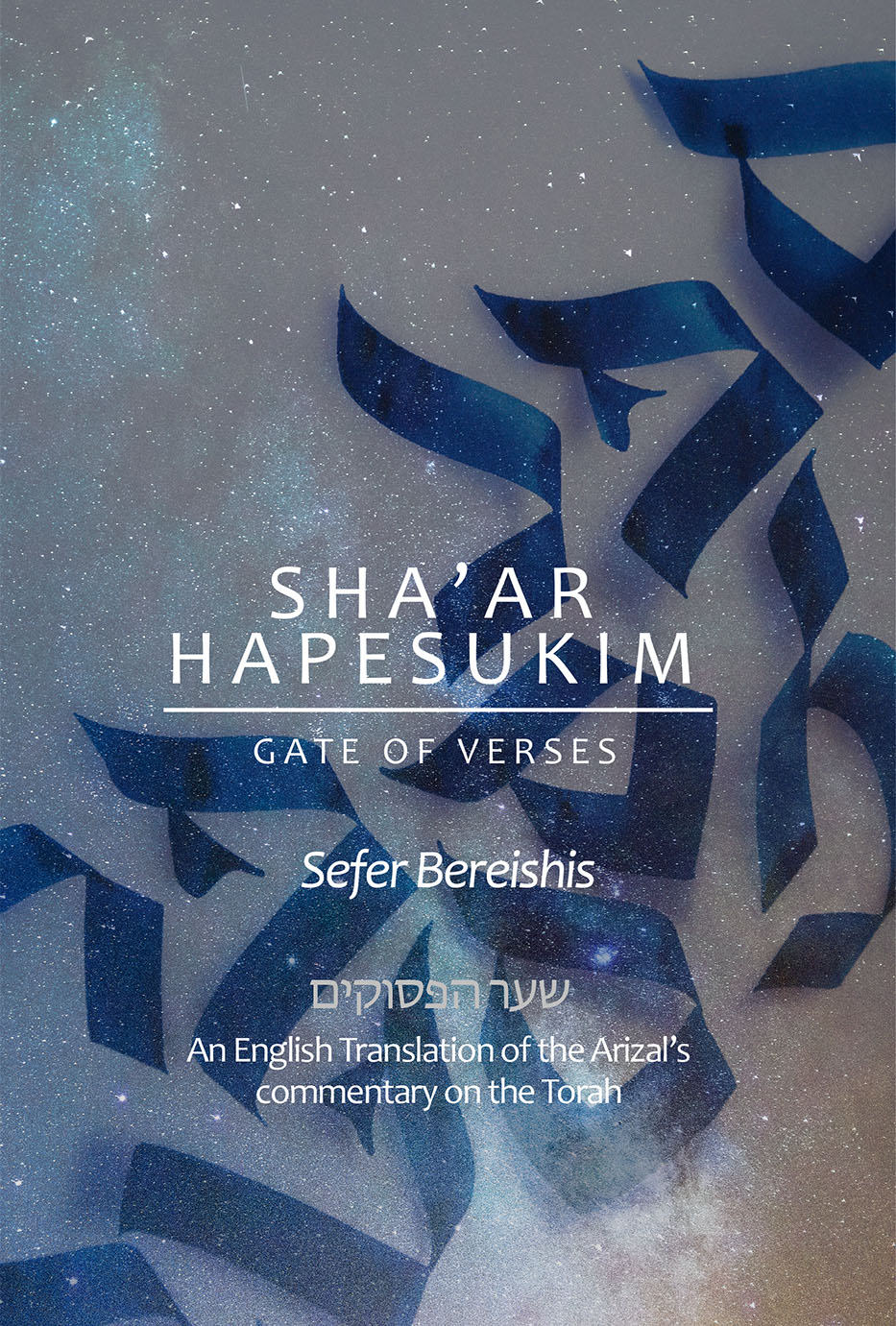Description
Sha’ar HaPesukim – Bereishis – By Rabbi Pinchas Winston
I WAS INSPIRED to translate Sha’ar HaGilgulim because it contains so much important information about personal rectification and Jewish history that can benefit just about everyone, especially those who do not learn Kabbalah. Reincarnation is about more than “just” the transmigration of souls, and so much of that “more” greatly impacts our current lives and history in ways we all need to know and appreciate.
Sha’ar HaPesukim, or “Gate of Verses,” is the fourth of eight “gates” of the writings of the Arizal. It focuses on Tanach—Torah, Prophets, and Writings—each of which can be learned on four increasingly more insightful levels—Pshat, Remez, Drush, and Sod—simplicity, hints, exegetics, and Kabbalah.
But whereas the first three levels provide more down-to-earth explanations, often background information to the verses, Sod offers a far deeper and more profound understanding of the inner workings of Creation and history. For example, the Exodus, on a Pshat level, reports the departure of the Jewish people from Egypt. According to Sod, however, it was also an important part of an ongoing rectification process going all the way back to Adam HaRishon, and spanning all of history.
Furthermore, many questions remain unanswered about the Exodus (or are taken for granted), even though it is such a cornerstone of Jewish history. Why did the Jewish people have to suffer to such an extent? Why was the exile specifically in Egypt? Pshat doesn’t completely answer these questions; Sod does. And it provides crucial insights into the Jewish people and history as a result.
In many respects, the events in Sefer Bereishis can be even more confusing. Things happen that, on a simple level, do not make sense to us. It is the kabbalistic explanation that sheds important light on such occurrences, providing profound insights into life that are easily overlooked on a Pshat level.
Aside from all the important ideas that emerge from a work such as Sha’ar HaPesukim, there is the awe itself—awe that history can be so complex and yet so incredibly interconnected…awe that we can know so much about it…and awe that God has shared this information with us. It is an awe that, in the end, can only bring us closer to our Creator, and that is everything.
Sha’ar HaPesukim, like Sha’ar HaGilgulim, was obviously written for those who are already well versed in Kabbalah and the writings of the Arizal. In some cases it was imperative to cross-reference material and to provide details from other works. In other cases the subject matter is just too complex to explain meaningfully in this kind of translation. It is up to the reader to continue the research on his own.
As mentioned in the Introduction to Sha’ar HaGilgulim, we live in very unique times. The explosion of knowledge and increasingly greater accessibility to all aspects of it can result in ever more confusion and misdirection. It is my hope and prayer that this translation accomplishes just the opposite, leading the reader down the true path to personal rectification and the service of God.
English-Hebrew Edition
The main version of this translation is a hardcover edition which contains the original Hebrew text side by side with the English translation. It is also available in PDF format through the Thirtysix.org online bookstore. As with the translation of Sha’ar HaGilgulim, transliteration of the Hebrew words is according to the Ashkenazic Hebrew pronunciation.
The goal has always been to keep the English translation as true to the Hebrew text as possible, for easier correlation. Sometimes, however, clarity of information overruled, and the translation is somewhat freer to help comprehension.
Annotations & Diagrams
Some of the material has been annotated and some diagrams have been included to help clarify important concepts. It would be wise for the reader to seriously contemplate all the information within the sefer, take little for granted, and avoid hasty conclusions as he delves deeper into what is an extremely holy and revealing work.
As the great Dovid HaMelech warned:
The secrets of God are to those who fear Him. (Te-hillim 25:14)
To learn something one need only access the information and comprehend its meaning. To know the secrets of God, one must also have fear of God. There is no substitute.
I thank Hashem Yisborach for everything, and in particular for letting me not only learn His Torah, but to learn it on the level of Sod as well. There is no way to describe the immense sense of completion it has provided me, so I won’t even try. I will just pray that I will be able to continue for many years to come, and to be able to appropriately share what I learn with others as well.
Once again, I am extremely indebted to Michoel Baruch, shlita, for the countless hours he has spent over the years reviewing my work, and for the invaluable editing he has provided. I consider his involvement in this work, without which I would not publish it, a wonderful example of Divine Providence. It is rare to find someone well-versed in Kabbalah, and fluent in Hebrew and English as well.
I am also very grateful to all those who have supported this project over the years in one way or another, making its publication possible.










